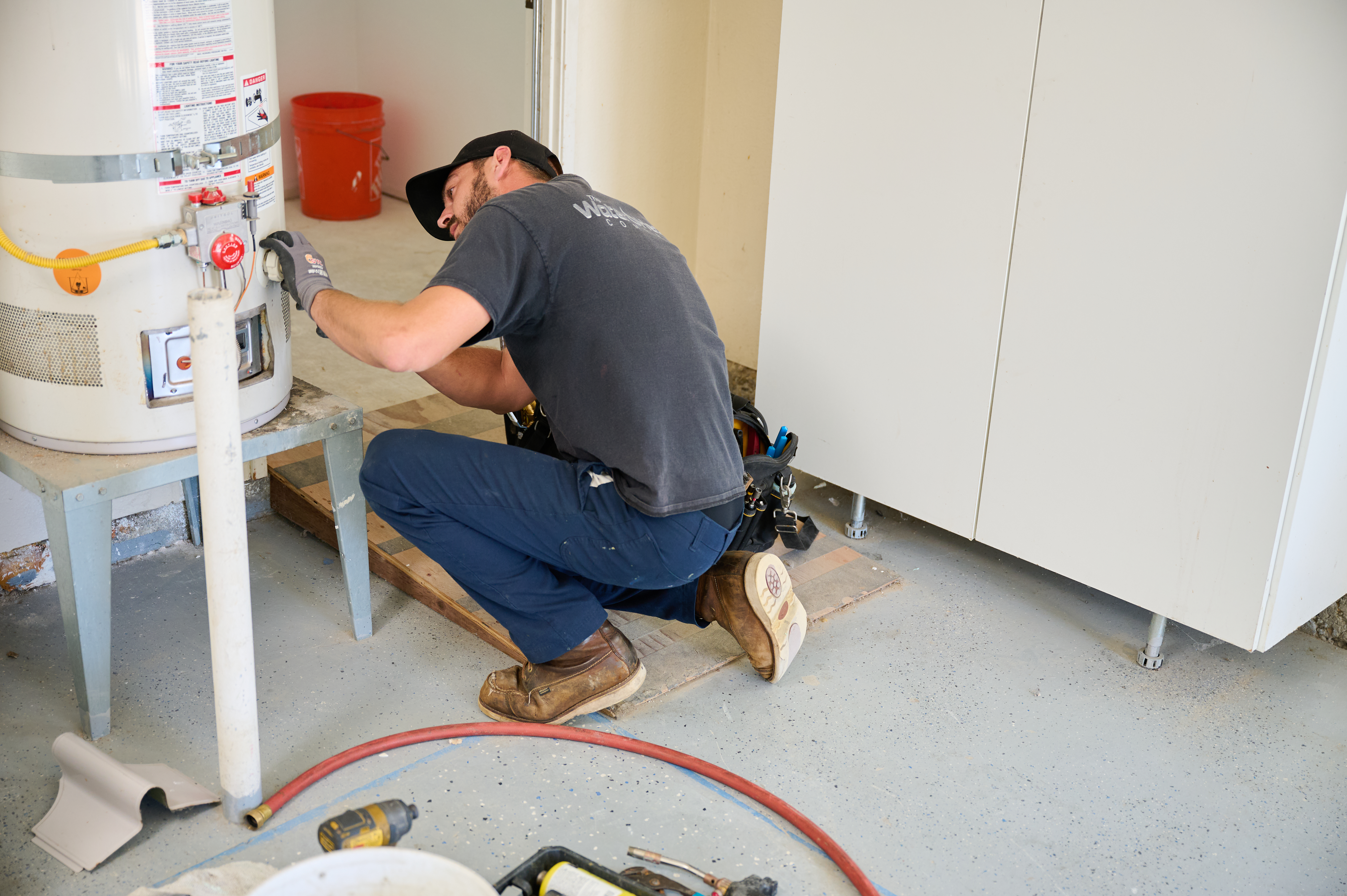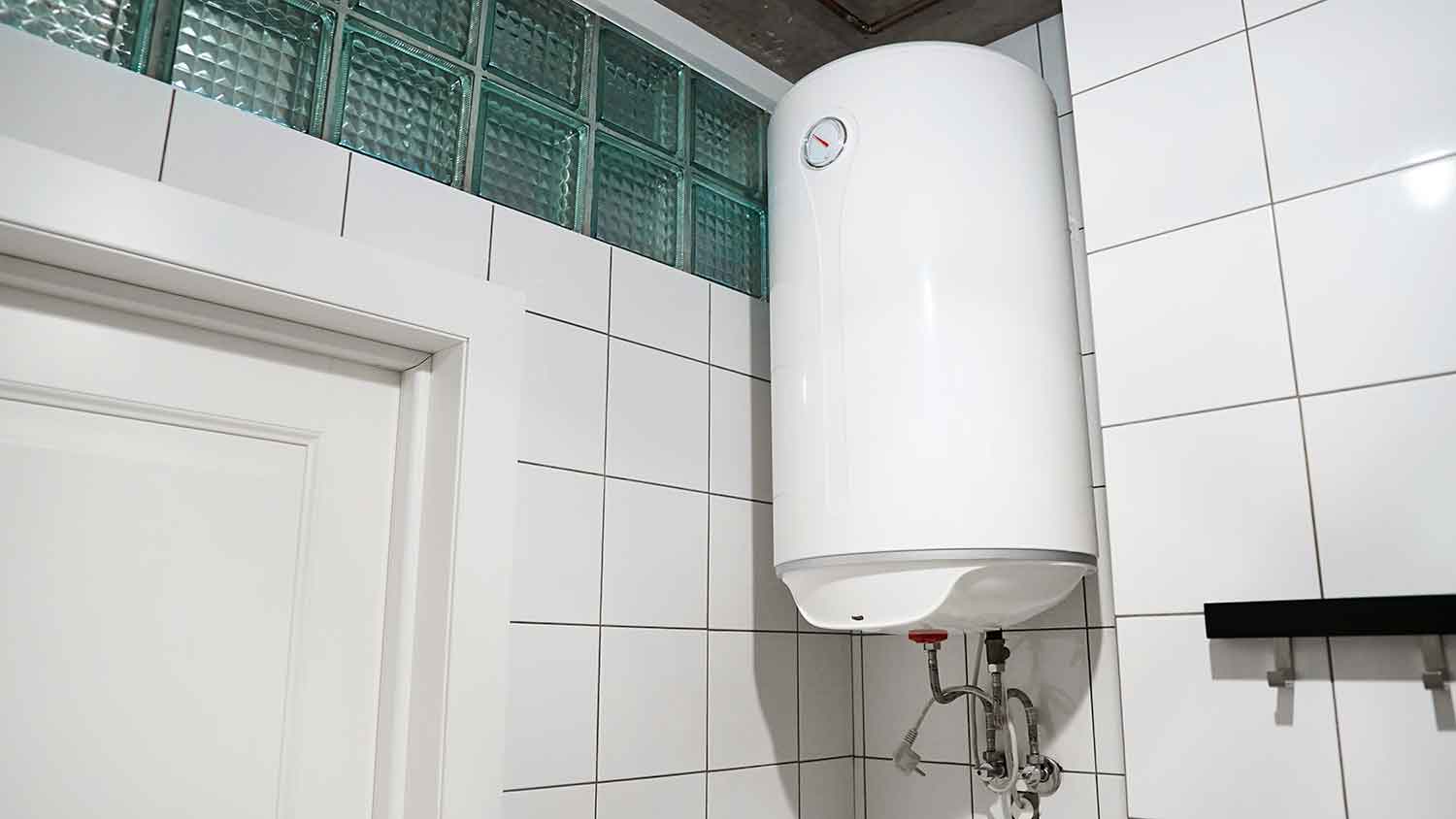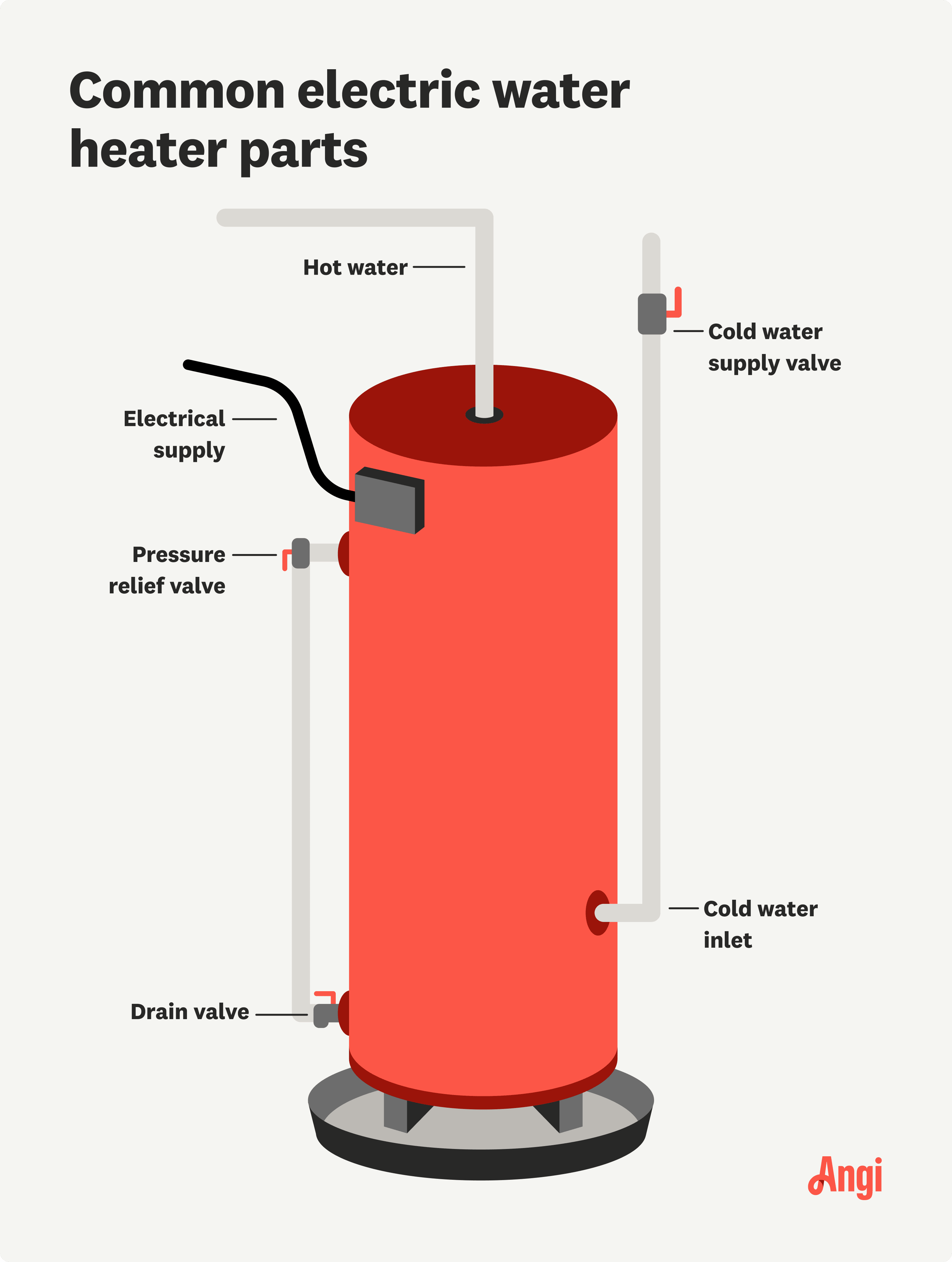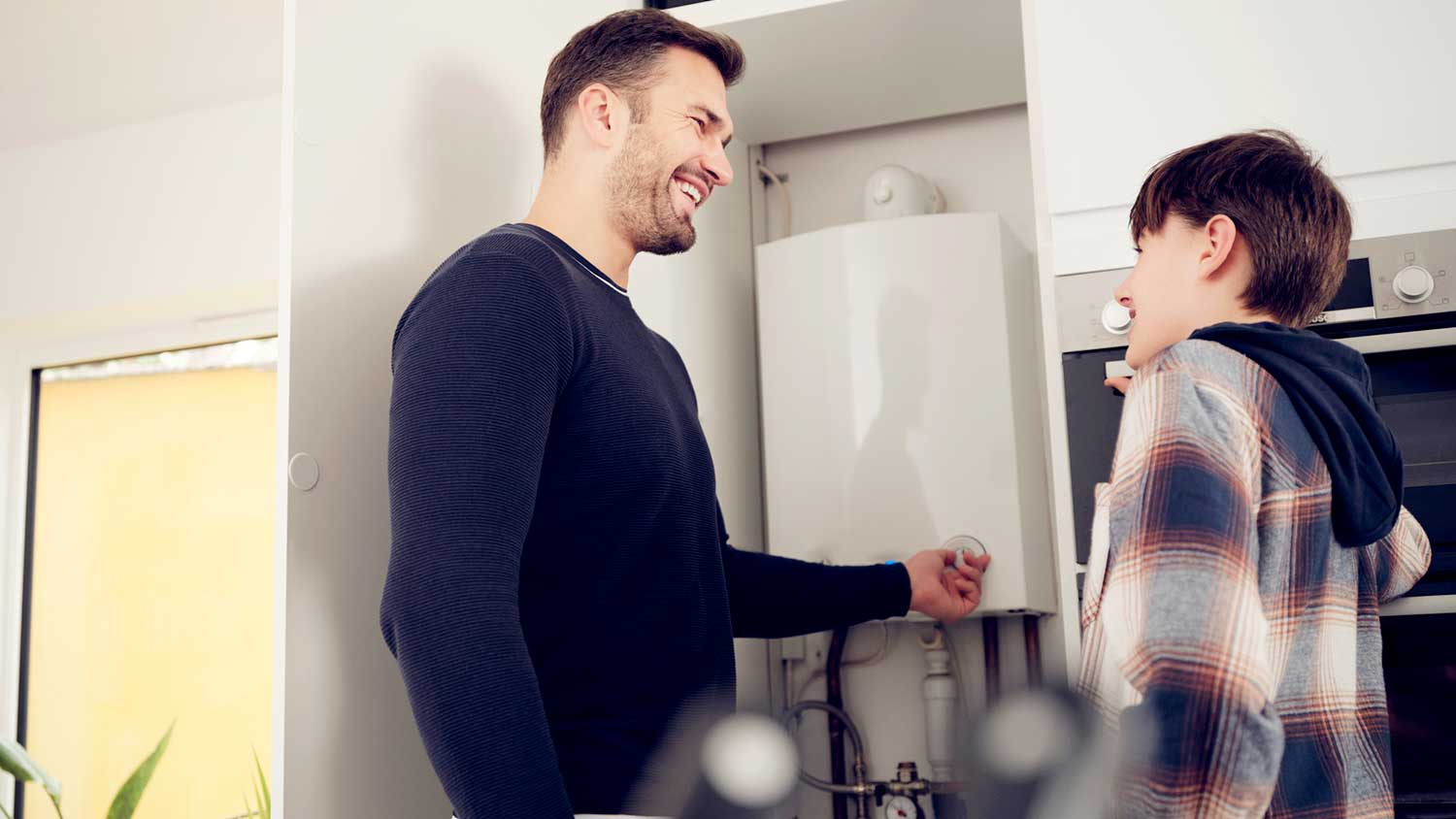
Tankless water heater costs depend on the size of your water heater, location, fuel type, and more. Keep reading to calculate your expenses.
The national average hot water heater repair cost in Minneapolis, MN, is $691, with most repairs ranging between $261 and $1,145. A pro can help determine the price of your specific repair.


The repair needed and the type of water heater you have will largely determine the price.
You might pay extra if your plumber is faced with accessibility issues, which is common in older and historic homes.
Expect an upcharge if your plumber needs to make an emergency visit.
A new water heater can boost your home’s ROI.
Minneapolis, with its long, brutal winters, can be prone to a multitude of plumbing problems, including ones that affect water heaters. Water heater replacement in the Twin Cities area costs $691 on average, but it often ranges from $261 to $1,145. The final price will depend on the repair needed and if the plumber needs to visit during difficult winter months, which could involve freezing pipes and travel difficulties.
No matter where you live, the cost of water heater repair will largely be based on the repair needed and the type of water heater you have. In Minneapolis, however, you might see specific charges related to your home’s style and age (if you live in an historic district) or for a call during a harsh winter.
As with any appliance, water heater repair costs vary based on the part you need. Water heaters have more than a dozen parts, ranging in size and cost. Take a look at some part estimates below, which don’t include the labor rate to replace them.
| Water Heater Part | Average Price to Replace |
|---|---|
| Anode rod | $25–$75 |
| Dip tube | $25 |
| Gas burner | $175 |
| Heating element | $70–$200 |
| Thermostat | $20–$400 |
Each water heater component serves a unique function. Many small parts cost $50 or less, but your total could reach the hundreds with the labor prices. Still, this is more affordable than a full water heater replacement, which costs between $850 and $1,800.

Water heater repair prices range from simple DIY fixes under $20 to more complex problems that can cost hundreds. The following issues occur in both electric and gas heaters. If you have a different type of water heater—like a heat pump versus a tankless water heater—you could be on the hook for additional repairs.
| Water Heater Repair Service | Average Cost in Minneapolis |
|---|---|
| Leak repair | $850–$1,800 |
| Pressure relief valve replacement | $200 |
| Dip tube repair or replacement | $150 |
| Anode rod repair or replacement | $50–$150 |
| Tank cleaning and flushing | $200 |
| Expansion tank repair or replacement | $100–$400 |
Lukewarm water coming out of your shower could indicate several issues, such as a thermocouple problem in a gas unit or a heater element failure in an electric unit. Costs vary based on your style because they require different parts and expertise to fix. The two main categories are gas and electric water heaters.
Gas water heater repair costs come from pilot light problems, thermostat issues, or a failed thermocouple. Each displays different symptoms with varying water heater repair prices that go with it.
| Gas Water Heater Component | Average Repair Cost in Minneapolis |
|---|---|
| Pilot light | $50–$150 |
| Thermocouple | $150 |
| Thermostat | $200 |
| Gas control valve | $350 |
A few problems are unique to electric water heaters. These involve tripped breakers, faulty heater elements, and bad thermostats.
| Electric Water Heater Component | Average Repair Cost in Minneapolis |
|---|---|
| Tripped breaker | DIY, or a service call fee of $150 |
| Heater elements | $200–$300 |
| Thermostat | $150–$200 |
Water heater pros in Minneapolis charge between $45 and $200 per hour on average. Rates depend on the contractor’s licensing level and experience—master plumbers will charge premium rates for complex projects. When budgeting for labor, consider the model of your water heater. Newer, higher-tech appliances have higher labor fees—a condensing tankless water heater, for instance, has more components than a non-condensing unit does, raising the price of labor.
Minneapolis is home to many historic neighborhoods, such as Powderhorn and Northeast. These homes are older with aging plumbing systems, and accessing plumbing behind original lath-and-plaster walls can add to your labor costs. In addition, it might be difficult to reach a water heater located in a tiny Victorian home’s basement. Accessibility is another factor that can drive up fees.
This Twin City is known for its extremely cold winters, which can lead to frozen and burst pipes. Emergency plumbing services cost a lot more, especially in the wintertime. Prices can be twice as expensive as the standard cost. If your plumber has to navigate snow, ice, or a difficult parking situation, expect an even higher charge.
We highly recommend inspecting your water heater annually for signs of degradation. If you spot any potential warning signs, consider contacting a local plumber.
Minneapolis requires permits for many plumbing projects—you can apply for permits using the city’s online permit form, but your pro will likely acquire them for you. The city updates the permit fees every year, so it’s important to review the current price structure before applying. The minimum fee is $85.20 for all projects, with standard plumbing work permits costing an additional $41.40.
Many plumbers in Minneapolis charge a service call fee, which ranges from $100 to $250 and covers travel time and initial diagnostics. This fee includes the first hour of labor and is meant to compensate for the time the plumber spends navigating the streets, especially in neighborhoods such as the Southwest, with its winding residential blocks.
Tips are not required, but they are appreciated. Many Minneapolis homeowners choose to tip between $20 and $50 for exceptional service or emergency plumbing services, especially during Minnesota’s harsh winter months.
All plumbing repairs in older Minneapolis homes can improve water efficiency, reduce maintenance problems, and improve resale value. Having a functioning water heater can reassure a potential homebuyer that they won’t have to brave a frosty winter evening without hot water. If you replace your unit altogether, depending on the type you choose, the water heater could increase your home value by 1.2%.
Home is the most important place on earth, which is why Angi has helped more than 150 million homeowners transform their houses into homes they adore. To help homeowners with their next project, Angi provides readers with the most accurate cost data and upholds strict editorial standards. We survey real Angi customers about their project costs to develop the pricing data you see, so you can make the best decisions for you and your home. We pair this data with research from reputable sources, including the U.S. Bureau of Labor Statistics, academic journals, market studies, and interviews with industry experts—all to ensure our prices reflect real-world projects.
Want to help us improve our cost data? Send us a recent project quote to [email protected]. Quotes and personal information will not be shared publicly.
From average costs to expert advice, get all the answers you need to get your job done.

Tankless water heater costs depend on the size of your water heater, location, fuel type, and more. Keep reading to calculate your expenses.

Tankless water heater costs in Columbus, OH depend on the size of your water heater, location, fuel type, and more. Keep reading to calculate your expenses.

Wondering how much a water heater expansion tank costs? Use this cost guide to get an accurate estimate and learn how to choose the right one for your home.

Who can install a water heater for you? Look to hire a water heater installation pro or a licensed plumber for this job because of the challenges involved.

If you’re wondering if you can install a water heater by yourself, know that you should leave this job to a licensed plumber to avoid financial risk and safety risks.

When your hot water is not working, it’s not always a water heater issues. Find out the cause and how to correct the course in our guide.